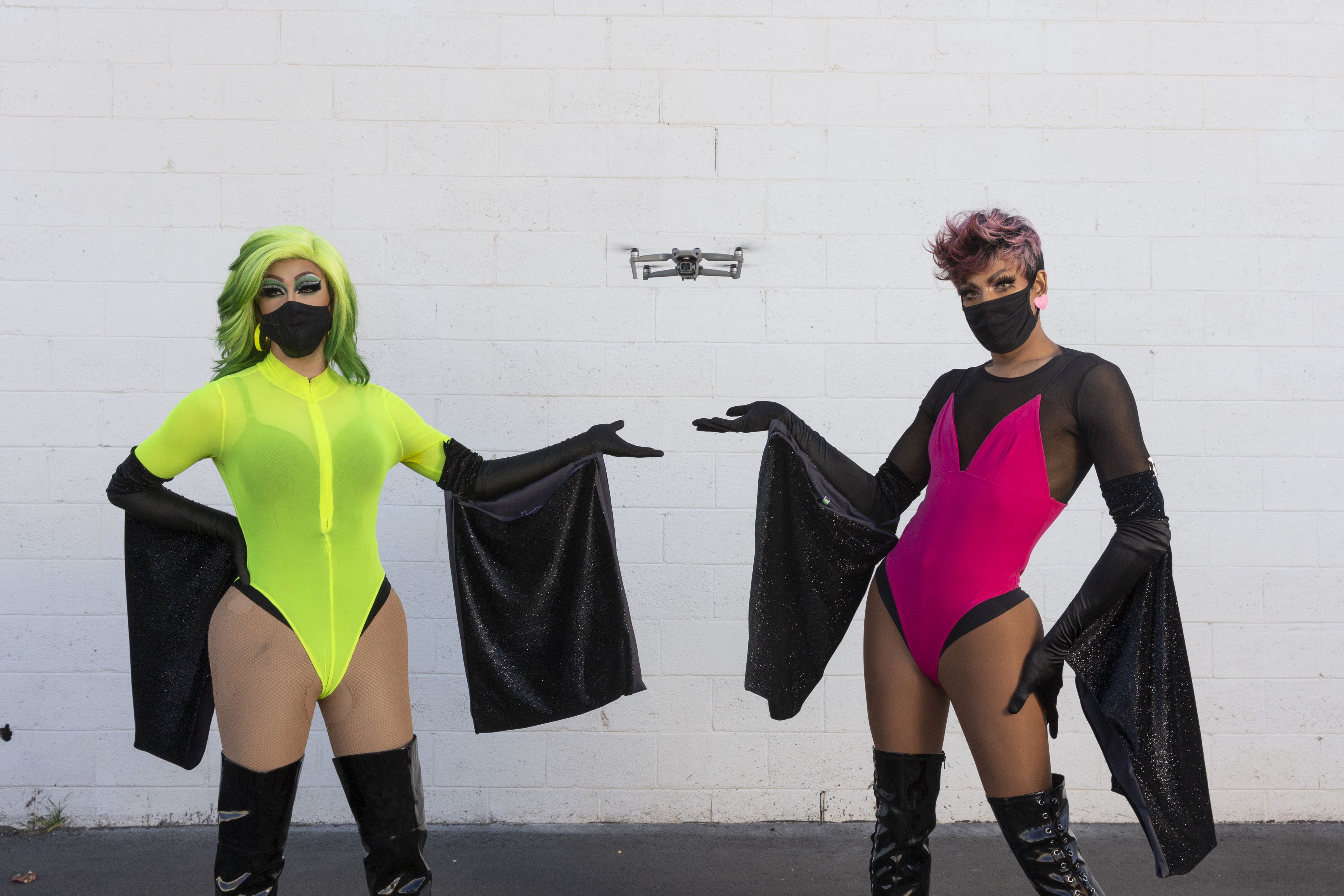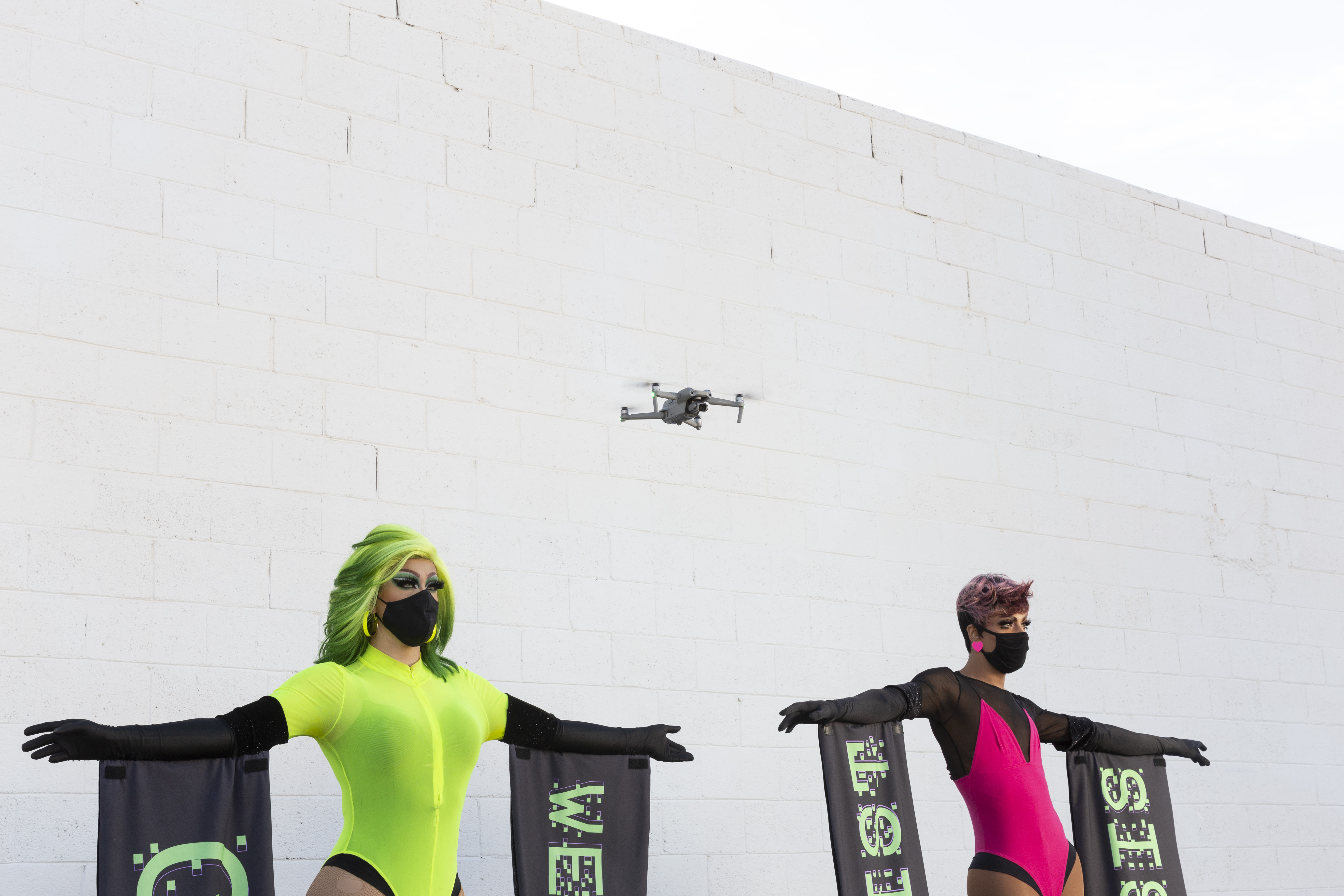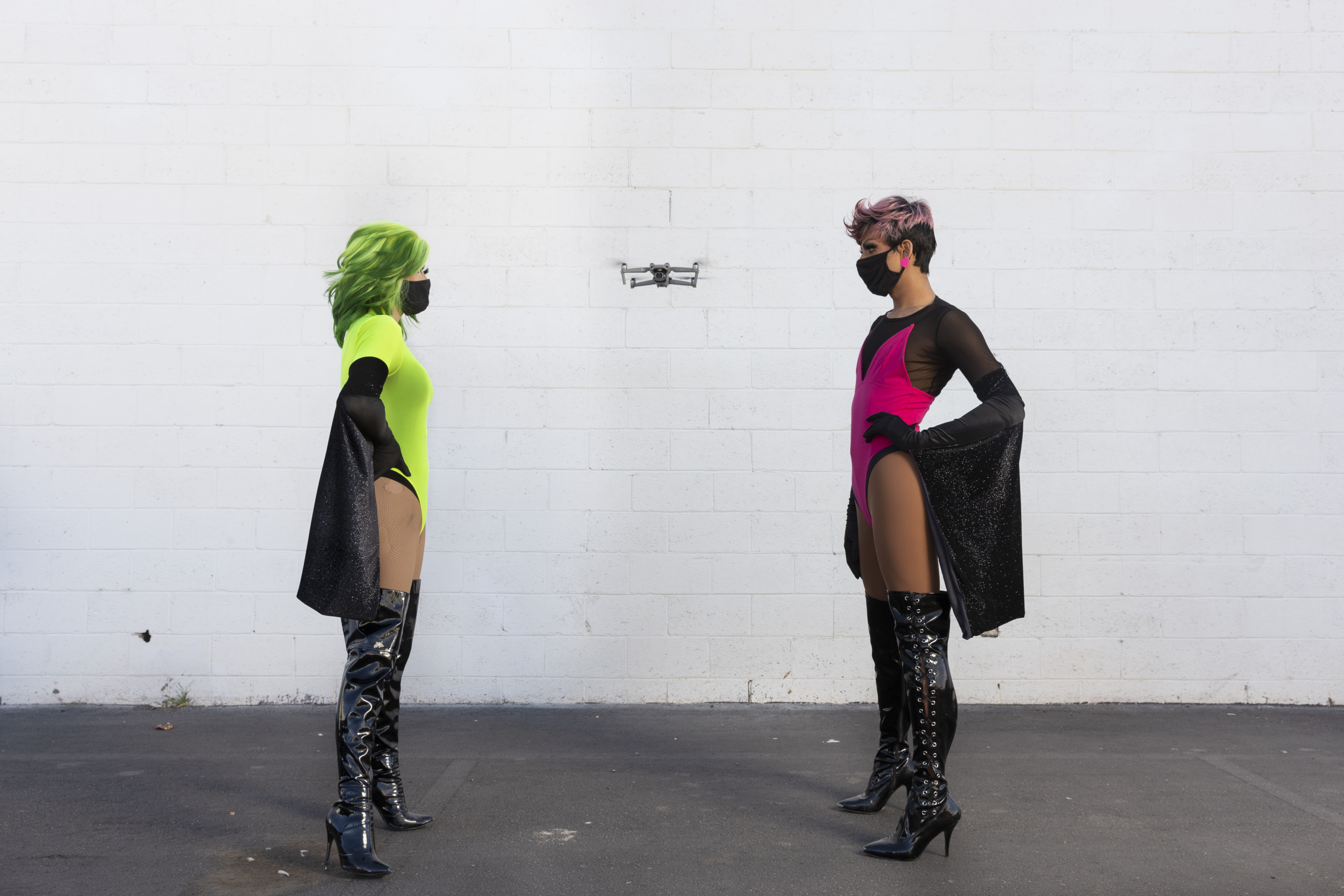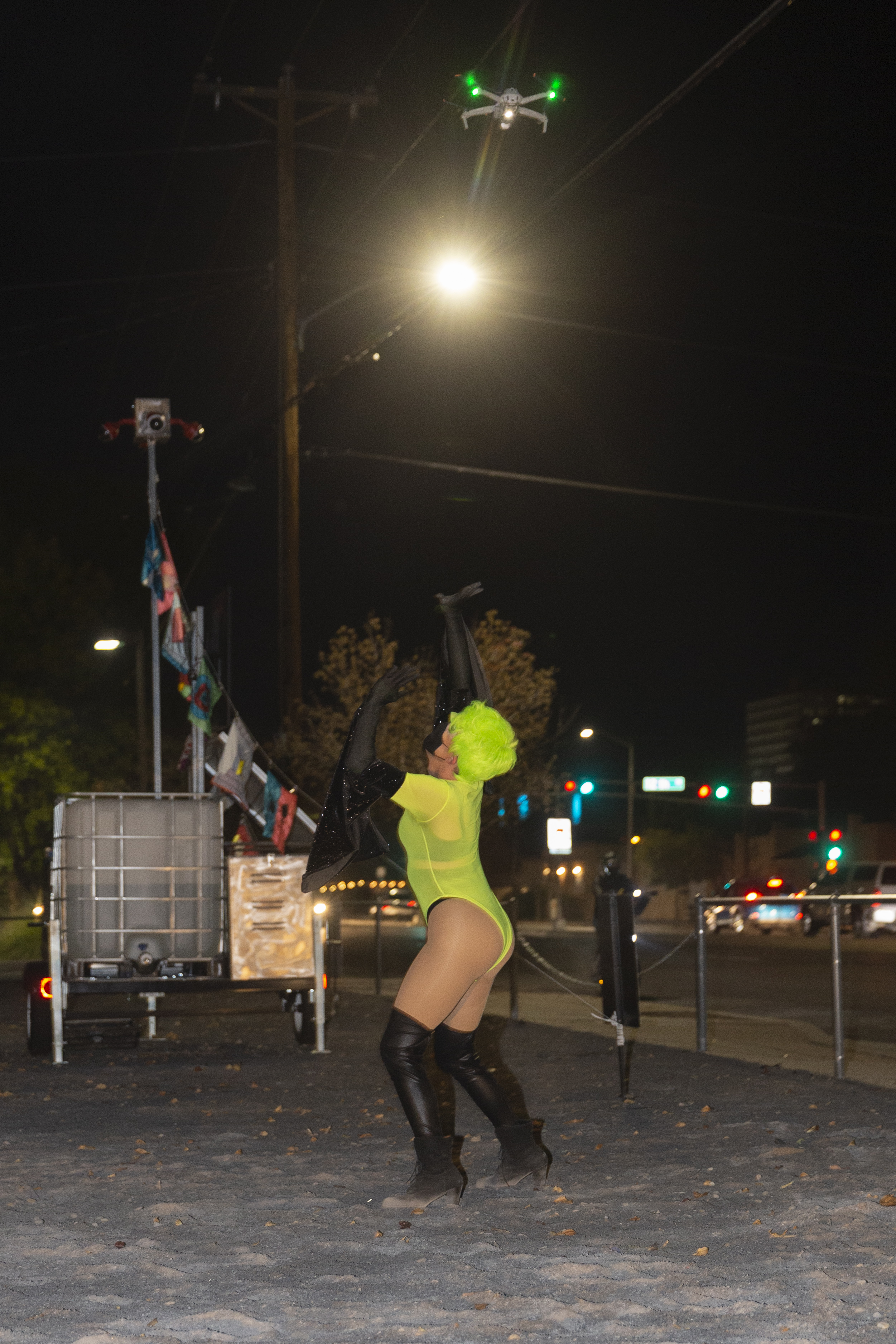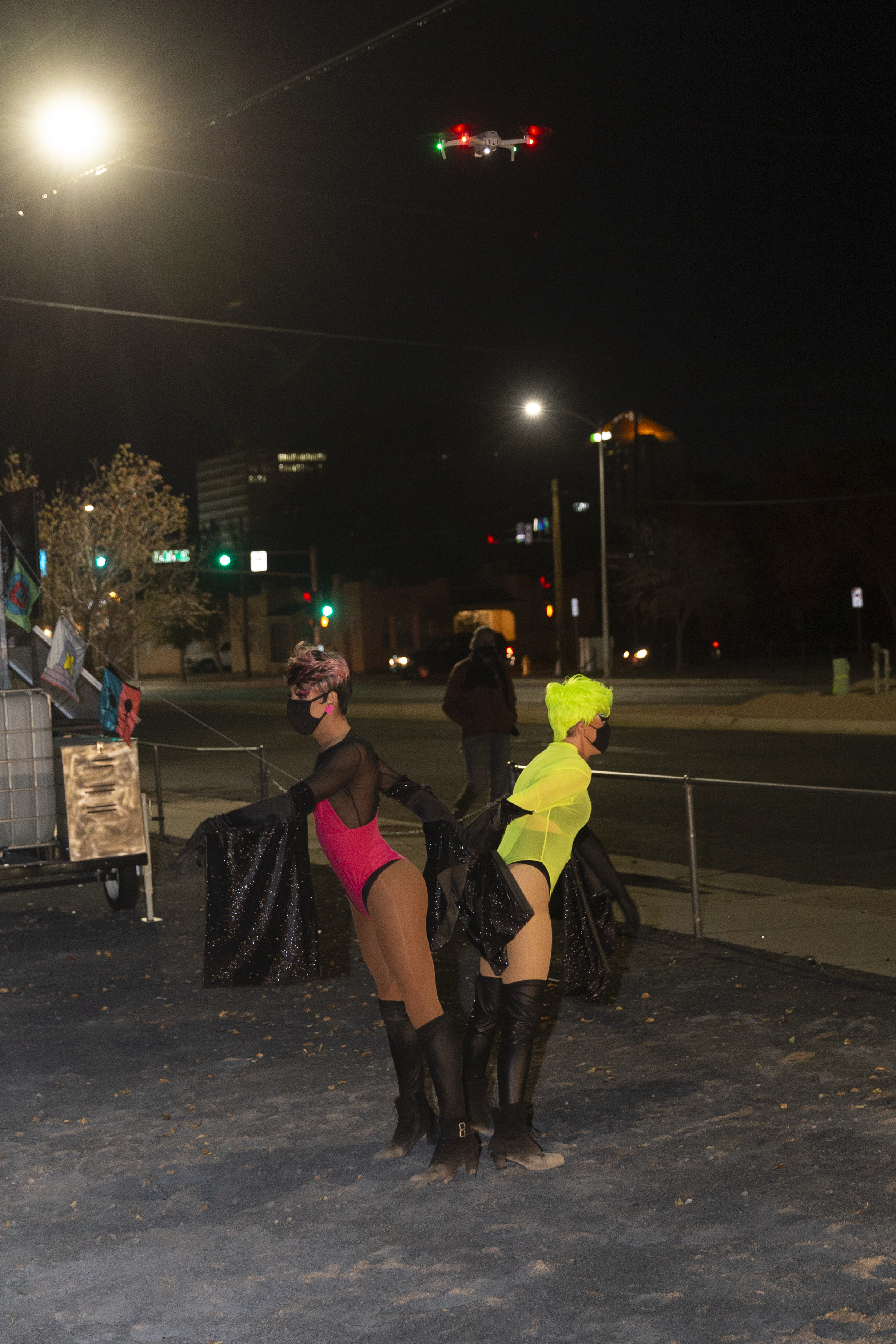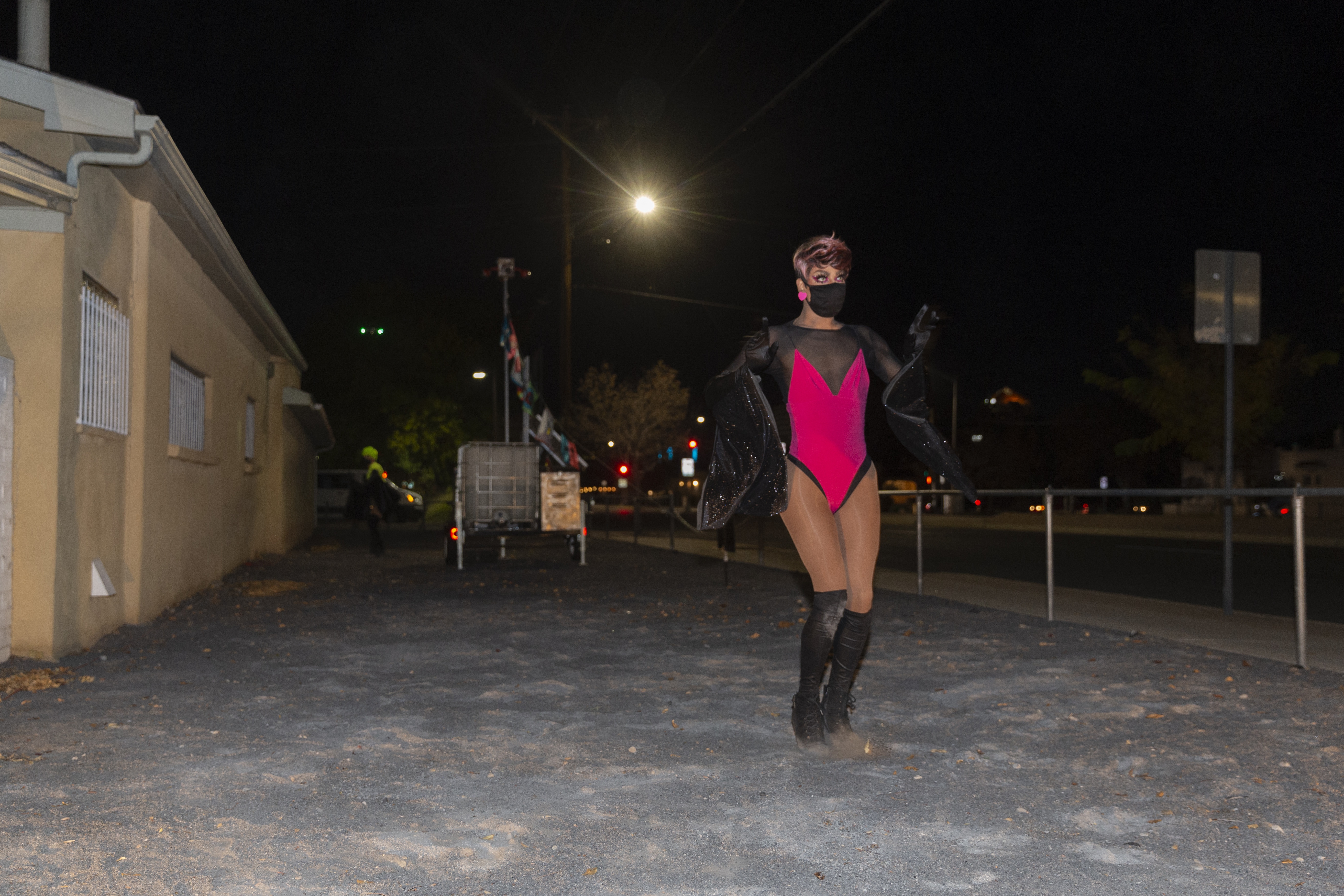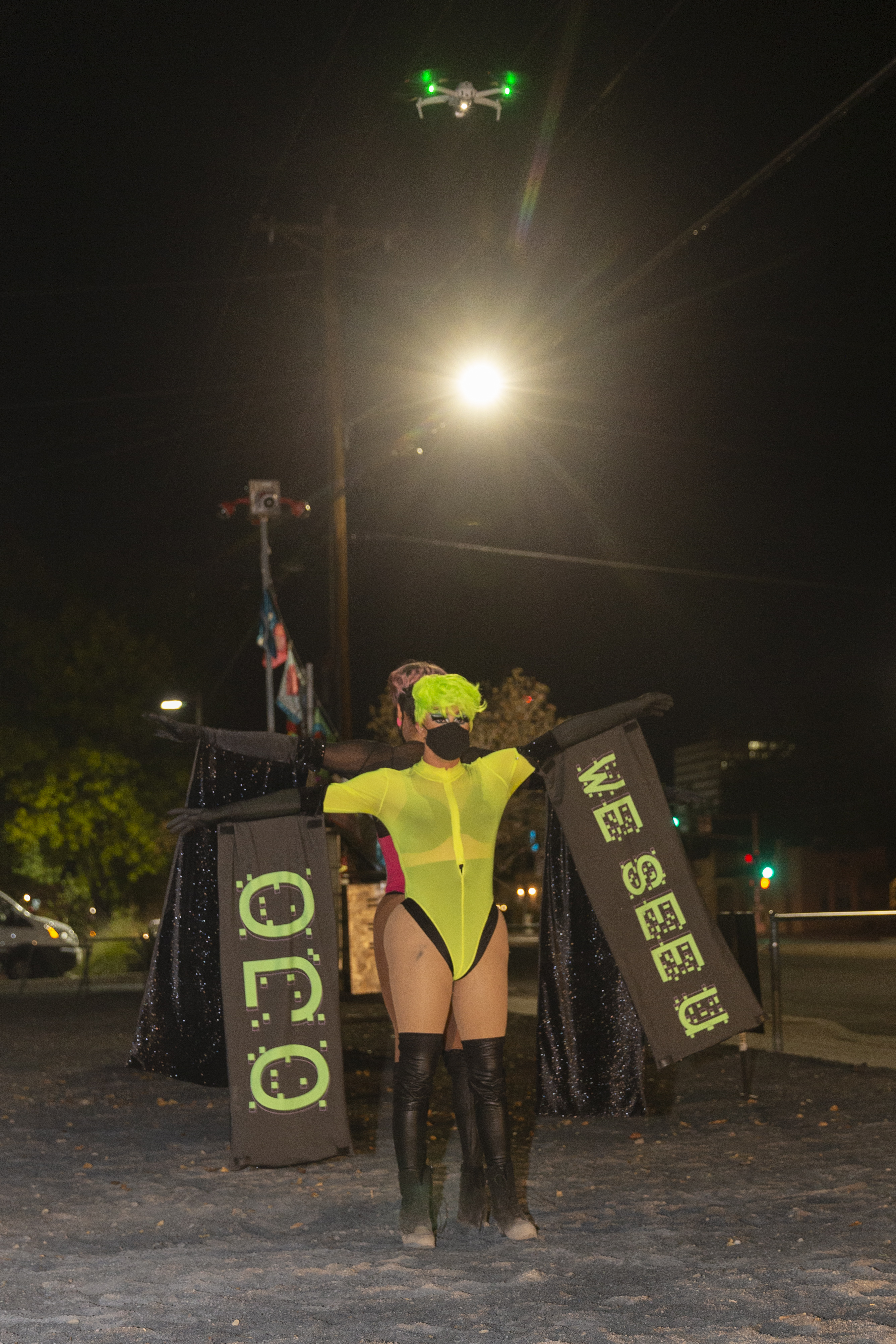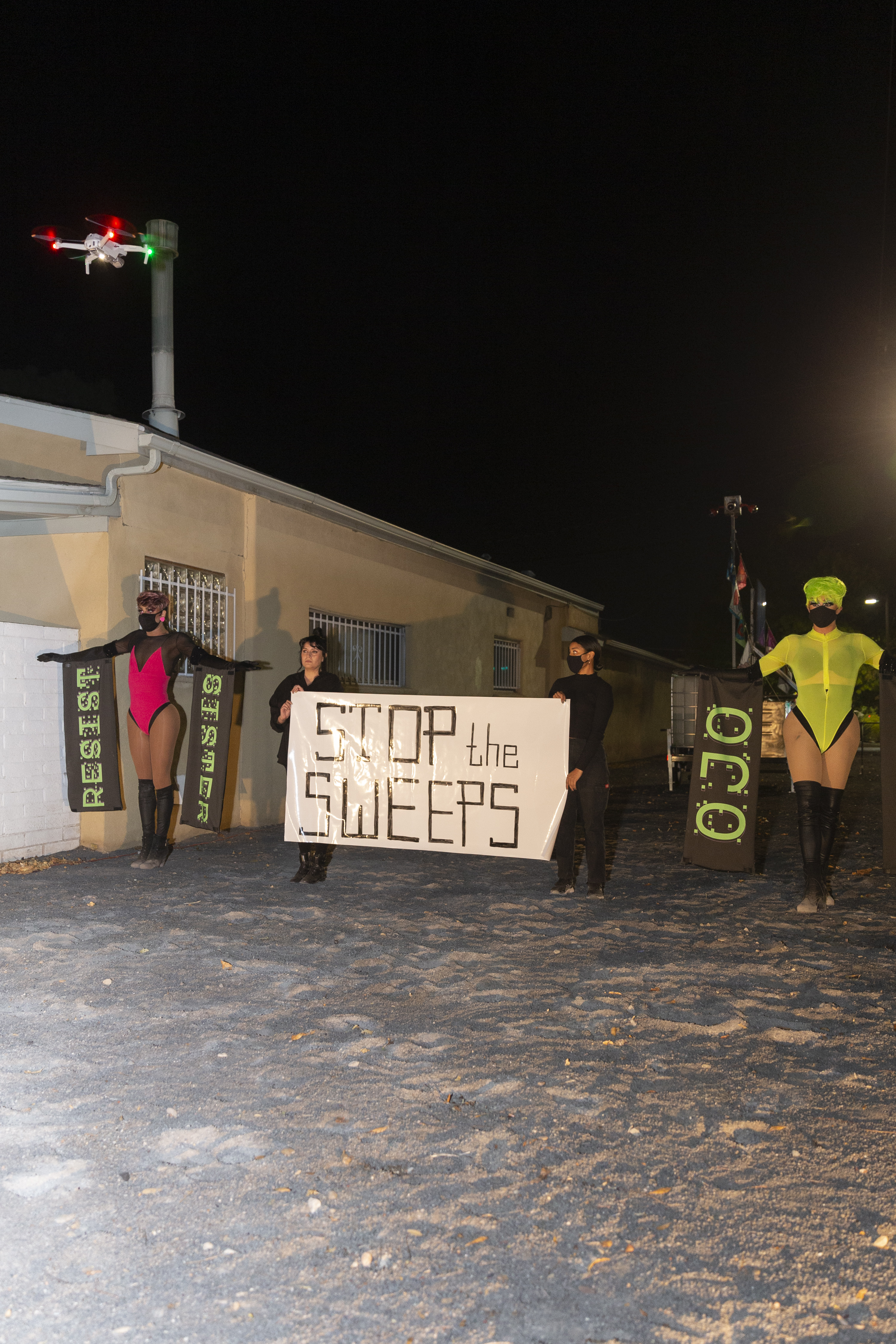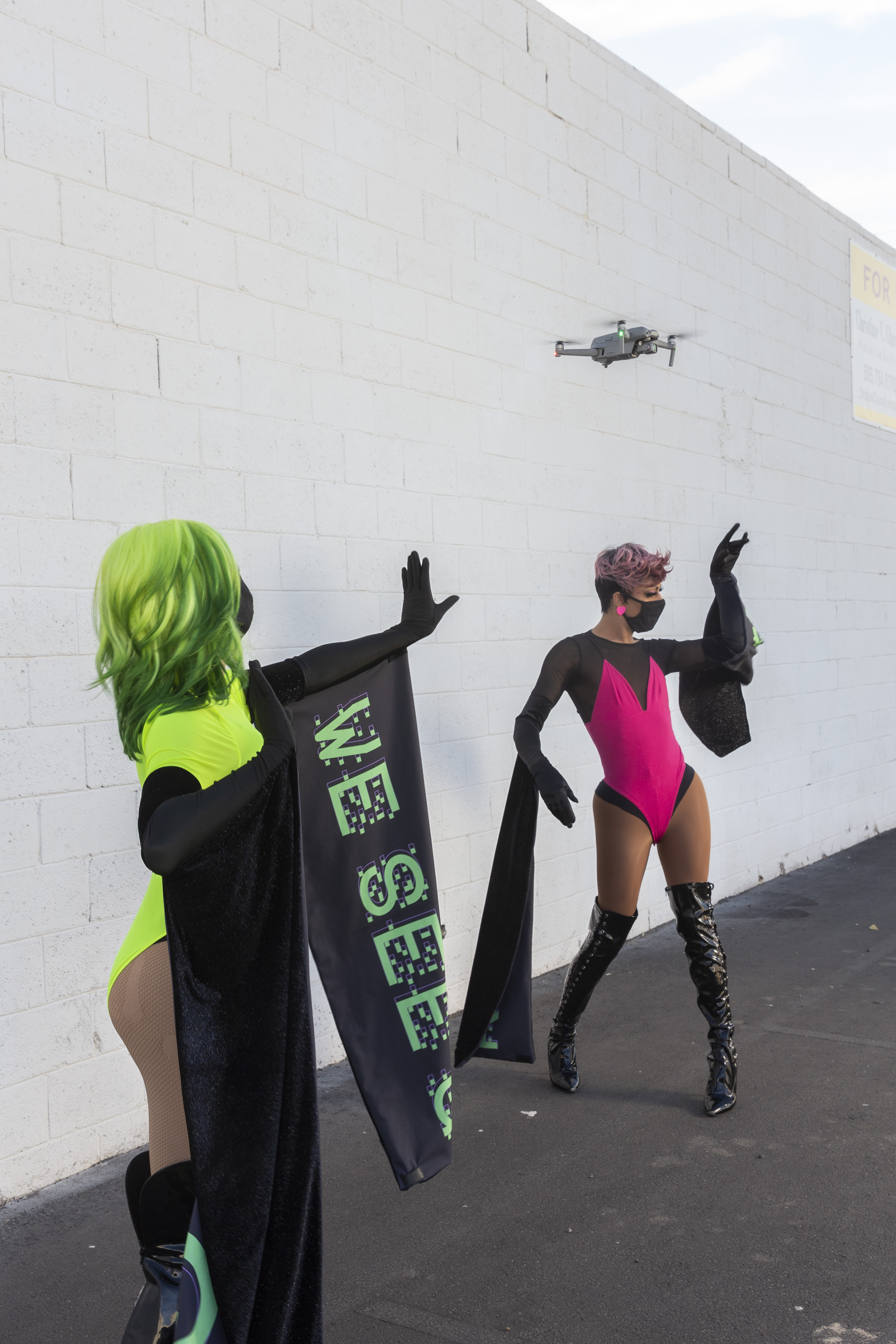
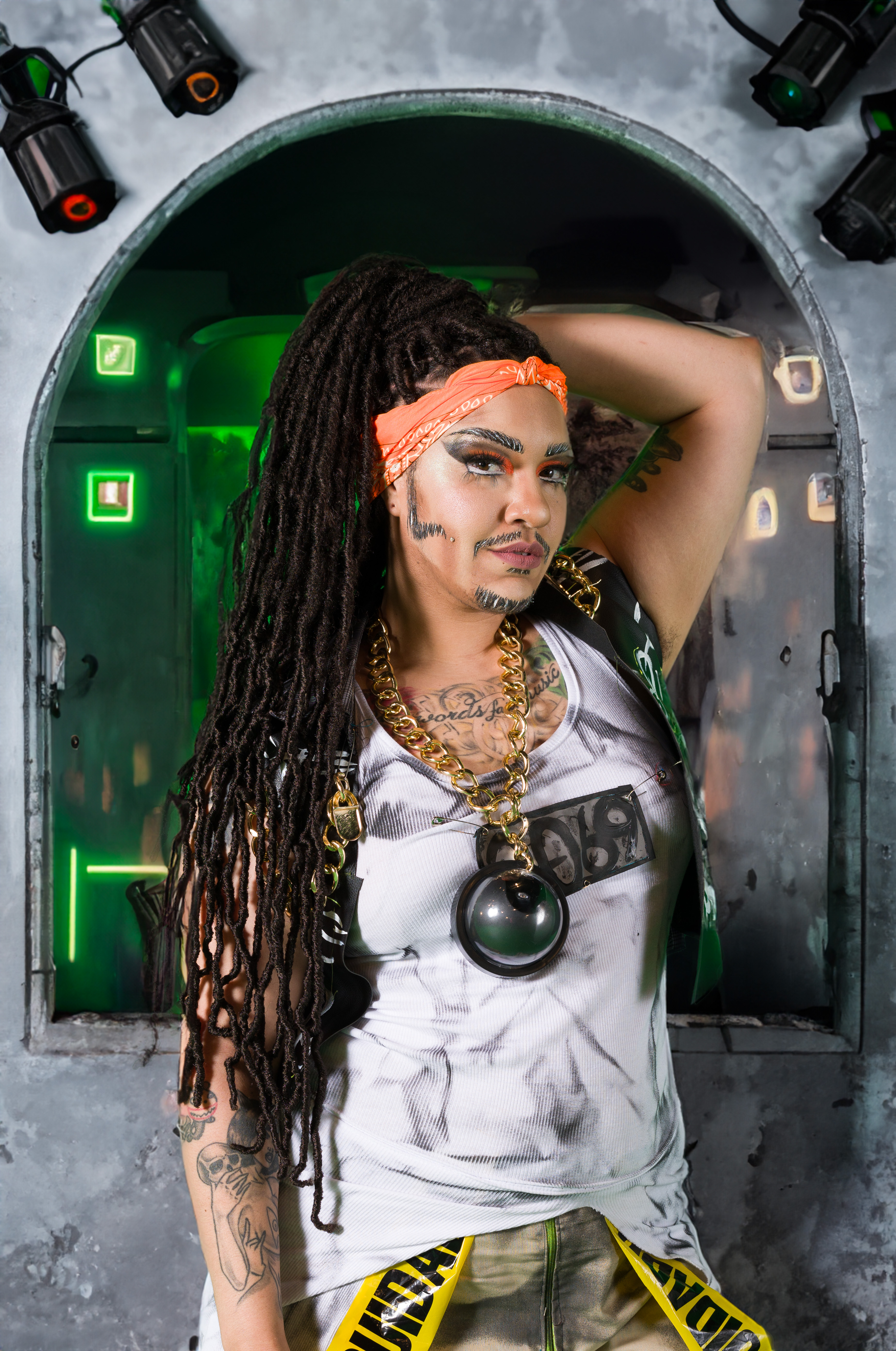
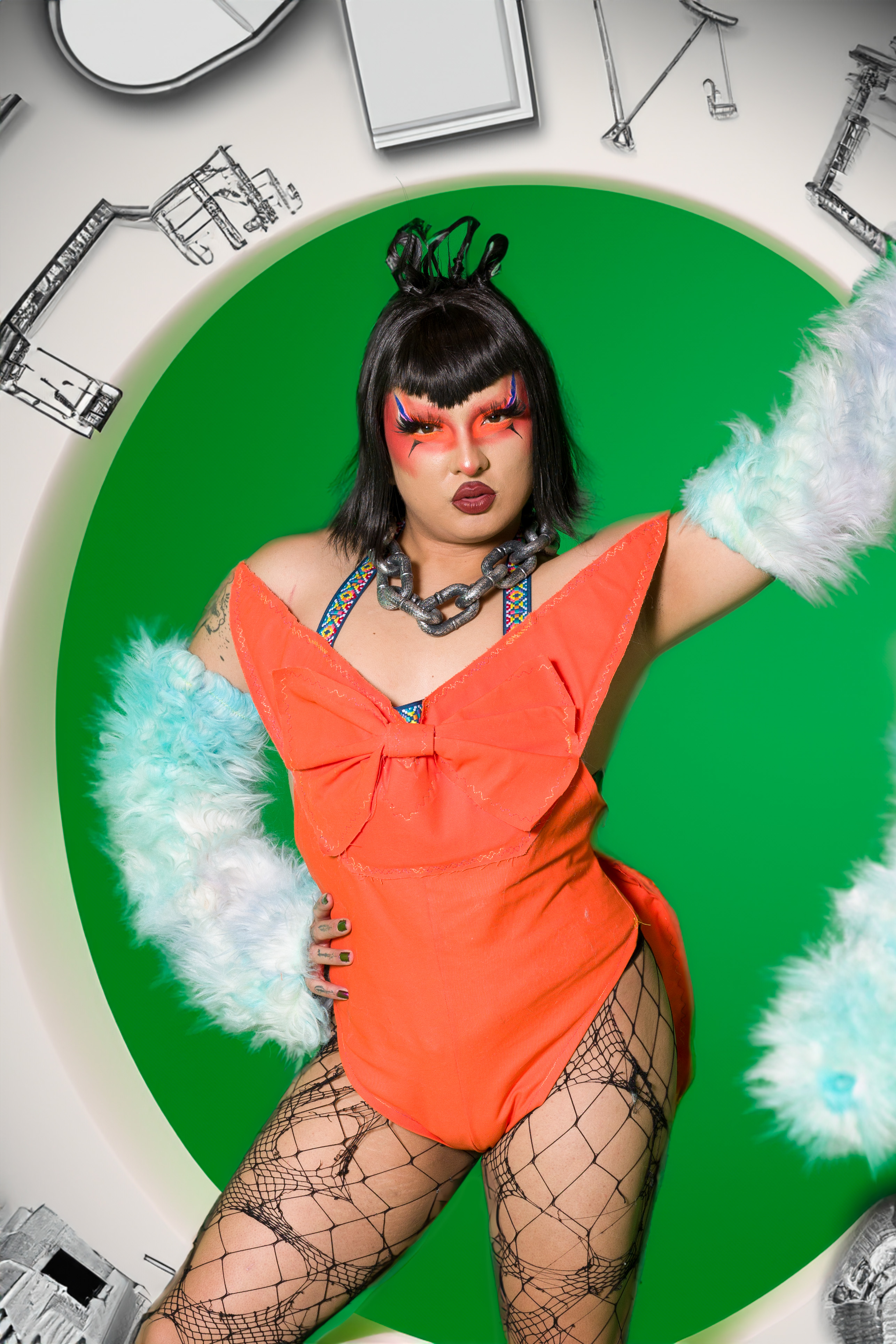


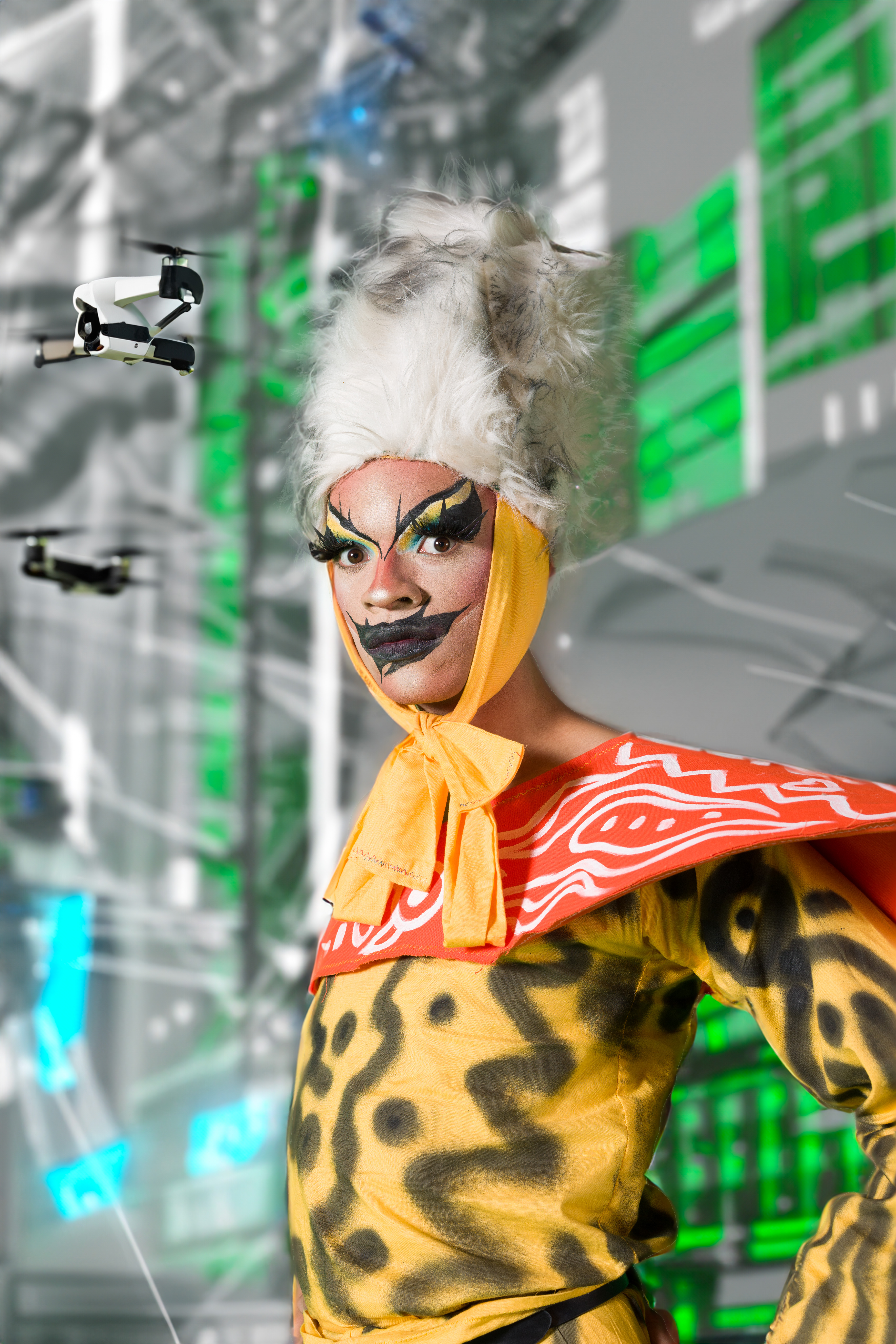

House of An-Aesthesia (HOAA) utilizes performance as a tool to disrupt our collective numbness to the surveillance and policing we experience in everyday spaces. HOAA interrogates the intersections of fashion, race, gender, sexuality, ability, policing, and capitalism in order to build life-affirming communities through an abolitionist framework. In the US, the current state of militarized policing blurs the lines between private/public, criminal/innocent, and human/less-than-human. We live in a world in which we perform for surveillance technologies every day. HOAA utilizes drag, joy, dance, and storytelling to protest the here and the now.
"Category is...2069" video is live online!
“Category is...2069” is a sci-fi abolitionist drag performance music video. In the near future, the ruling classes use surveillance and policing technology to capture people and sterilize them en masse, as populations become superfluous due to robots and artificial intelligence. A band of prisoners figures out how to hack the policing technology (facial recognition, ankle monitors, mass data-gathering) and begin to organize other prisoners. They break out from behind bars, liberating themselves. The surveillance technologies become time-travel devices and they return to 2023. It’s unclear why they have returned: some may be interested in starting a new life, some come to disrupt the path to the dystopian future, some just want to party…
Michael Lynn Hertz
a project of the House of An-Aesthesia
Category is…2069” Song:
"Category is...2069" video is live online!
a project of the HOUSE of AN-AESTHESIA
“Category is...2069” is a sci-fi abolitionist drag performance music video. In the near future, the ruling classes use surveillance and policing technology to capture people and sterilize them en masse, as populations become superfluous due to robots and artificial intelligence. A band of prisoners figures out how to hack the policing technology (facial recognition, ankle monitors, mass data-gathering) and begin to organize other prisoners. They break out from behind bars, liberating themselves. The surveillance technologies become time-travel devices and they return to 2023. It’s unclear why they have returned: some may be interested in starting a new life, some come to disrupt the path to the dystopian future, some just want to party…
Featuring:
Michael Lynn Hertz
Kayla Chingada
Katie K. Bouvier
Allison Saint
Taglé
Gemmarhoid
Kuwani
“Category is… 2069” Music Video
a project of the House of An-Aesthesia
Producer: fronteristxs collective
(hazel batrezchavez, Bernadine Hernández, Martín Wannam, Szu-Han Ho)
Directors: Szu-Han Ho and Martín Wannam
Videographer: Isaiah Watts
Camera: Jay Scribe
Drone: Jacob Williams
Designers: Allison Saint & Taglé “
Category is…2069” Song:
Music Producer: Kazi Beats
Songwriting: Szu-Han Ho and Martín Wannam
Chorus inspired by “Rinse & Repeat” by Riton, Kah-Lo
Vocals: Michael Lynn Hertz, Gemmarhoid, Allison Saint, Taglé, Nino Ricca Lucci, Gabriel Hudson
Talent Manager: Alexandria Zuniga de Dochas
Thank You
Francisco Galarte, Zac Travis, iusti remer-thamert,
Ilse Biel, sheri crider, Marlene Tafoya,
Valery Estabrook, Stewart Copeland, UNM Arts Lab, High Desert Debris
This project was supported by The MAP Fund.

WHAT IS MASS SURVEILLANCE?


Increased community surveillance leads to increased encounters between
residentsand the police, and as we know too well, more police encounters
with people of color lead to more injury and death. Surveillance
technology deployments by police agencies are overwhelmingly unleashed
against communities of color. Increased surveillance on communities
of color will turn our world into an open-air prison. Even worse, it will
place residents at extreme risk, because all police encounters begin with surveillance.
Some mass surveillance tools used by police:
residentsand the police, and as we know too well, more police encounters
with people of color lead to more injury and death. Surveillance
technology deployments by police agencies are overwhelmingly unleashed
against communities of color. Increased surveillance on communities
of color will turn our world into an open-air prison. Even worse, it will
place residents at extreme risk, because all police encounters begin with surveillance.
Some mass surveillance tools used by police:
1.
Surveillance planes with powerful wide-area cameras that can record the public movements of every person in an entire city2.
Surveillance light bulbs, which can transform streetlights into cameras with microphones3.
Surveillance cameras with facial recognition which can track you whenever you are in public, and are far more likely to misidentify persons of color4.
Cell-site simulators (a.k.a. “Stingrays”) which use your cellphone to locate you and track your movements5.
Automatic license plate readers (ALPRs) that track wherever you drive6.
Intelligent Virtual Assistants (Amazon Alexa, ECHO, Dot, Google Assistant, Nest, Siri)–these devices record and listen in to conversations; they are vulnerable to security breaches and can be hacked remotely. Police can obtain warrants for the data and recordings collected by these devices.7.
Remote exploitation refers to software that can be used to turn on your computer/smartphone camera or microphone without being detected. This can be used by private hackers as well as FBI, police agencies, nation states, and the National Security Agency (NSA)And the list goes on...
Sources:
Rozita
Dara, "The Dark Side of Alexa, Siri and Other Personal Digital
Assistants," The Conversation, December 15,
2019,
Chad
Marlow and Gillian Ganesan, "Stop the Police Surveillance State Too," ACLU, August 19, 2020,
"How
Hackers and Governments Can Hack Your Smartphone Camera," Tech Insider,
March 7, 2017.
Sara
Tipton, "How to Protect Yourself From Microphone and Camera Hacking," Activist Post, September 17, 2019.
Rozita Dara, "The Dark Side of Alexa, Siri and Other Personal Digital Assistants," The Conversation, December 15, 2019,
Chad Marlow and Gillian Ganesan, "Stop the Police Surveillance State Too," ACLU, August 19, 2020,
"How Hackers and Governments Can Hack Your Smartphone Camera," Tech Insider, March 7, 2017.
Sara Tipton, "How to Protect Yourself From Microphone and Camera Hacking," Activist Post, September 17, 2019.
We use our hands
to support
Southern Exposure / San Francisco CA
May 29 – July 3, 2021
Exhibition curated by Lukaza Branfman-Verissimo
May 29 – July 3, 2021
Exhibition curated by Lukaza Branfman-Verissimo
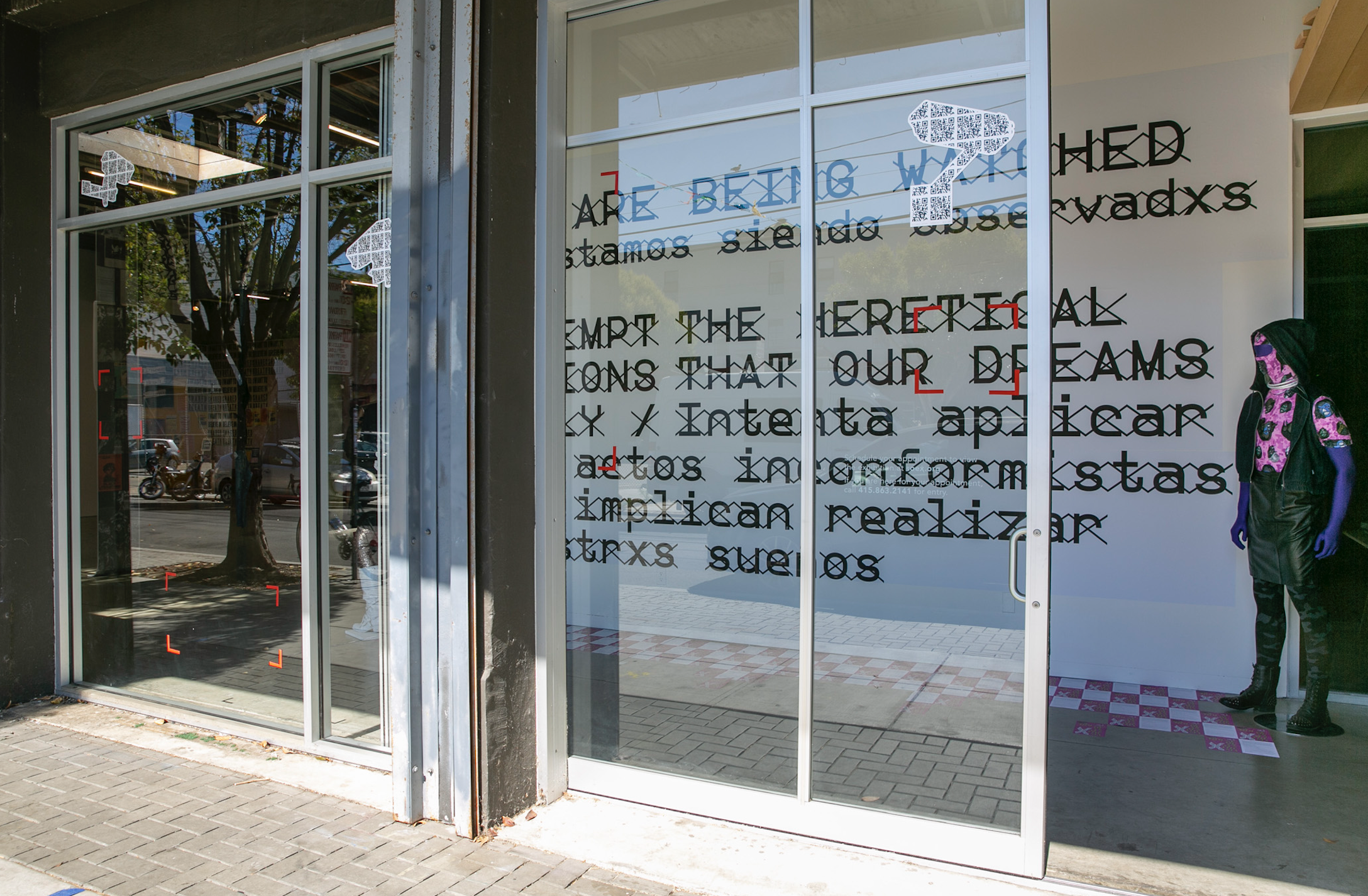
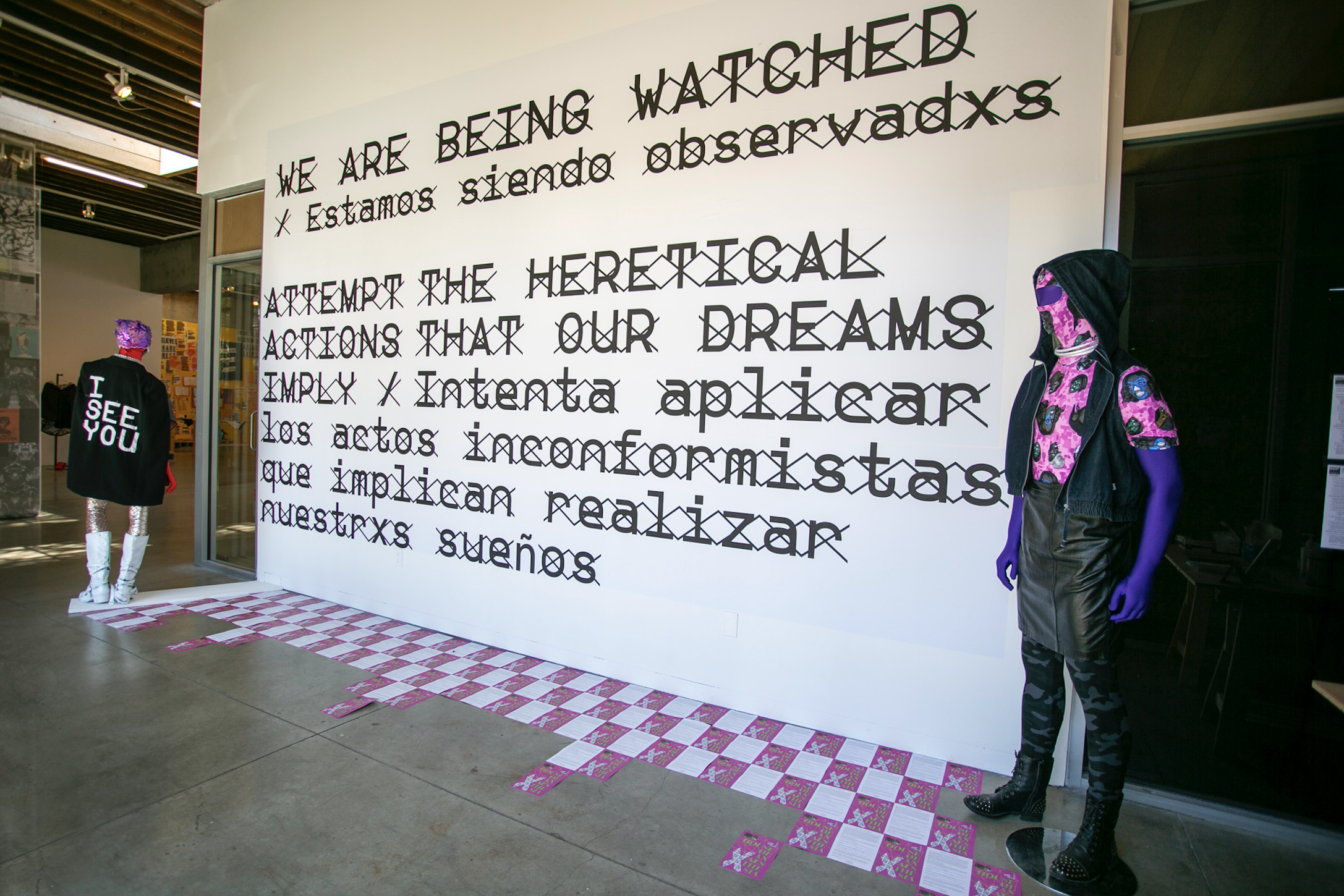
TransVEIL
Performance on Nov 05, 2021
Off-Lomas / Albuquerque NM
Exhibition organized by sheri crider
w/ ABQ Mutual Aid Donation Drive


